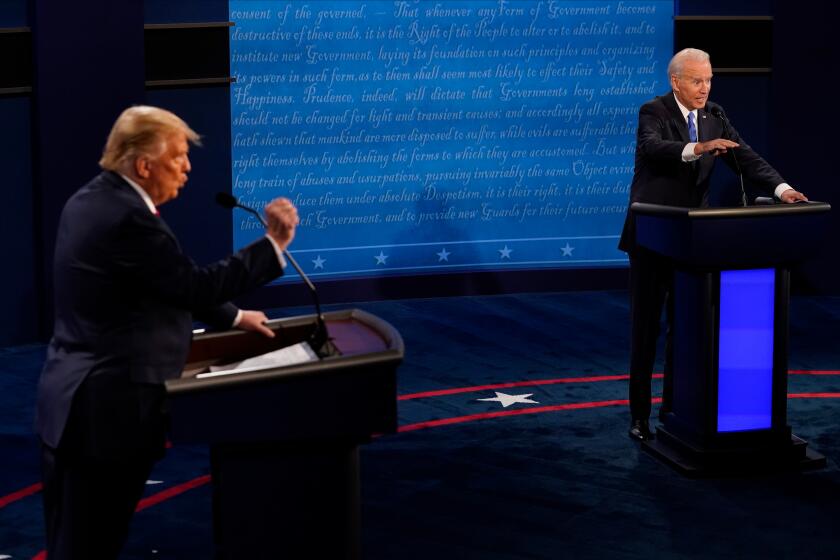Wheres the balance on Chavez?
The Times printed an editorial on Venezuela’s recent national referendum. I am particularly concerned because your editorial, like many in other newspapers, strongly echoed the opinions of the Bush administration, failed to provide needed balance and displayed a misunderstanding of dramatic changes taking place in Venezuela.
In the wake of the Dec. 2 referendum, virtually every newspaper of regional or national circulation has published an editorial or an Op-Ed article on the results or on Venezuelan President Hugo Chavez. The New York Times, Washington Post, Los Angeles Times, Boston Globe, New York Post, Miami Herald, San Francisco Chronicle, Houston Chronicle, Kansas City Star, Seattle Times and Chicago Tribune all published editorials on the referendum, all of them critical of Chavez. In fact, most of the editorials celebrated the result of the referendum as a victory for democracy without mentioning that democratic participation and consultation have expanded dramatically in Venezuela in recent years.
Beyond the sheer geographic and numerical reach of such a large number of editorials (five of the newspapers are within the top 10 in circulation; all 11 are in the top 35), the very remarkable coincidence is that they all including The Times speak or echo the Bush administration’s line on Venezuela. There seems to be little interest in balance, much less in challenging the Bush administration’s double standard in how it approaches Venezuela’s democratic institutions. On Nov. 30, the White House claimed that free and fair elections could not be held in Venezuela, and on Dec. 3, it it celebrated the results. Your editorial did the same thing. Are Venezuelans to think that our democratic institutions can only be considered acceptable if the results they produce agree with U.S. policy?
I do not expect everyone to agree with the changes taking place in Venezuela. What I do expect, and what is necessary for a better understanding of the region as a whole, is that inaccuracies be minimized and opinions be better balanced. In the wake of the referendum, this absolute lack of balance has become all too clear. While international election observers, the international media, a number of governments and international institutions (including the Organization of American States, the European Union, Spain, Peru, Mexico and others) and various members of Congress recognize the transparency of our electoral system, U.S. editorial pages have been filled with single-sourced condemnations of Chavez and mischaracterizations of Venezuela’s political, economic and social process. In recent years, Latin America has become a very different region. Unfortunately, many in the U.S. have failed to understand these changes, choosing instead to look at Latin America in the same frame used during the Cold War. The editorial pages of this country’s newspapers have both an incredible chance and a difficult responsibility to promote dialogue and debate, both for the improvement of U.S. policy and the general understanding of the region. With this recent spate of editorials and Op-Ed articles, it does not seem like that is happening. The Embassy of the Bolivarian Republic of Venezuela will always be open for dialogue, in the spirit of respect and in collaboration for a better understanding of the changes taking place in Venezuela.
Bernardo Álvarez Herrera is Venezuela’s ambassador to the United States.
More to Read
A cure for the common opinion
Get thought-provoking perspectives with our weekly newsletter.
You may occasionally receive promotional content from the Los Angeles Times.






